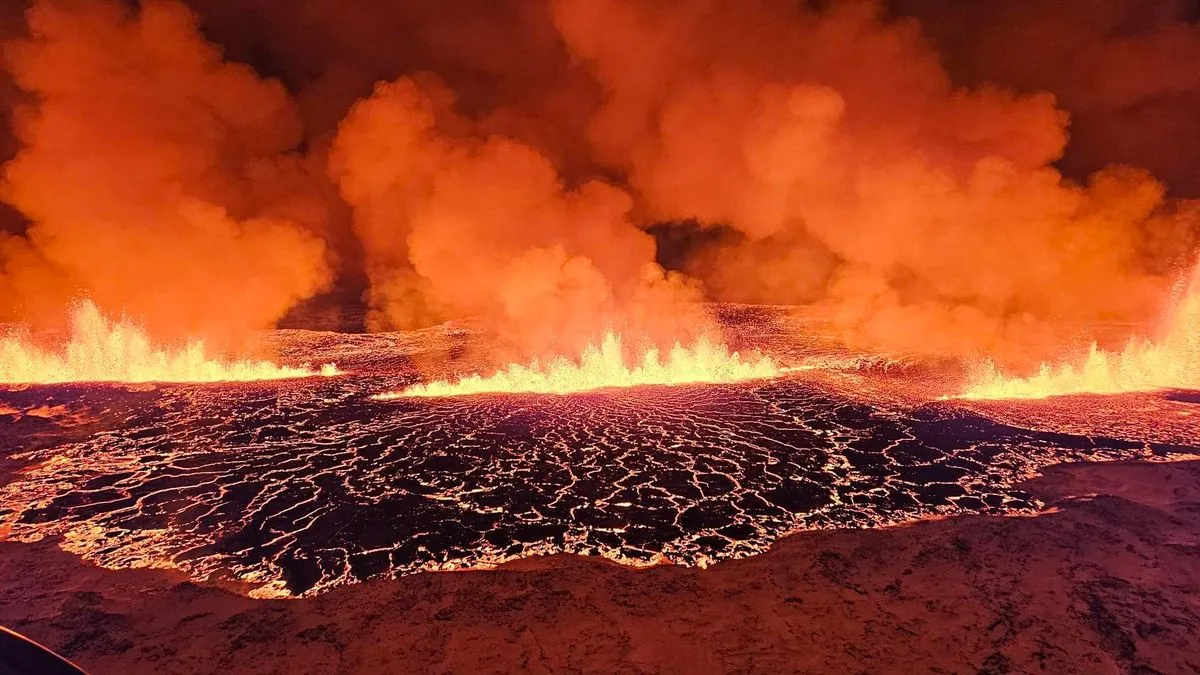On August 22, 2024, the Reykjanes Peninsula in southwestern Iceland experienced its sixth volcanic eruption since December 2023. The event began shortly after 9 p.m., following a series of strong earthquakes. Within an hour, a 4-kilometer fissure had opened in the Sundhnúkur crater, releasing vibrant red lava into the night sky.
Icelandic authorities have stated that the eruption's effects remain localized, with only road closures implemented as a precautionary measure. The nearby town of Grindavík, which was largely evacuated in December 2023 when the volcano first reawakened after 800 years of dormancy, is not currently under threat.
Halldór Björnsson, head of weather and climate at the Norwegian Meteorological Agency, informed the Icelandic news portal Vísir that unlike previous eruptions, the lava flow is not moving towards Grindavík. Geophysicist Magnús Tuma Guðmundsson, who conducted an aerial survey of the eruption centers, suggested that if the current pattern continues, Grindavík should remain safe. He added that the eruption may have reached its peak and could soon begin to subside, similar to previous events.
The Reykjanes Peninsula, known for its volcanic and geothermal activity, sits atop the Mid-Atlantic Ridge where the Eurasian and North American tectonic plates meet. This geological setting contributes to Iceland's frequent seismic and volcanic events, with over 30 active volcanic systems across the country.
The eruption has quickly become a tourist attraction, drawing hundreds of curious onlookers to nearby vantage points. Visitors from around the world have expressed awe at the natural spectacle. Mahnoor Ali, a tourist from Maryland, USA, described it as "the coolest thing I've seen in my whole life," initially mistaking the glow for the northern lights.
"We have like a volcano as well, but we cannot see lava like this."
This recent volcanic activity has not only captivated tourists but also highlighted Iceland's unique geological features. The country harnesses its volcanic resources for geothermal energy, generating approximately 25% of its electricity from these sources. The Blue Lagoon, a popular geothermal spa near Grindavík, is a testament to the region's volcanic nature.
While some volcanic eruptions in Iceland have caused significant disruptions in the past, such as the 2010 Eyjafjallajökull eruption that affected air travel across Europe, experts do not anticipate this current event to impact air traffic. This is welcome news for both the aviation industry and Iceland's growing volcanic tourism sector, which has seen a surge in popularity since the Fagradalsfjall eruption in 2021.
As the situation continues to evolve, authorities and scientists will closely monitor the eruption's progress. For now, the Reykjanes Peninsula's latest volcanic display serves as a reminder of Iceland's dynamic and ever-changing landscape, shaped by the powerful forces beneath its surface.
